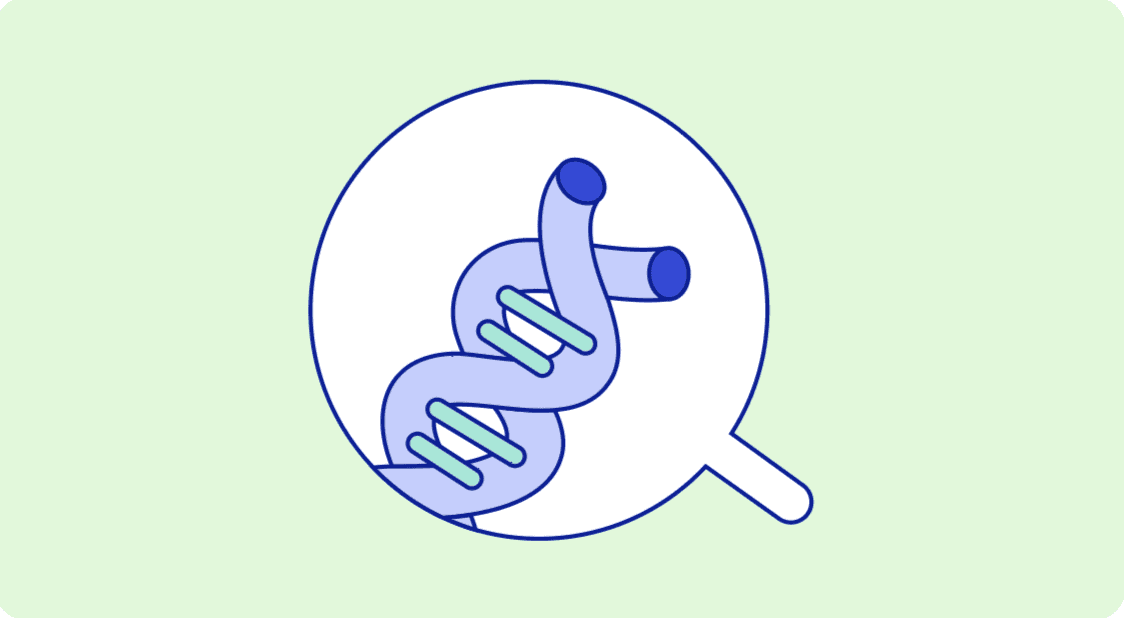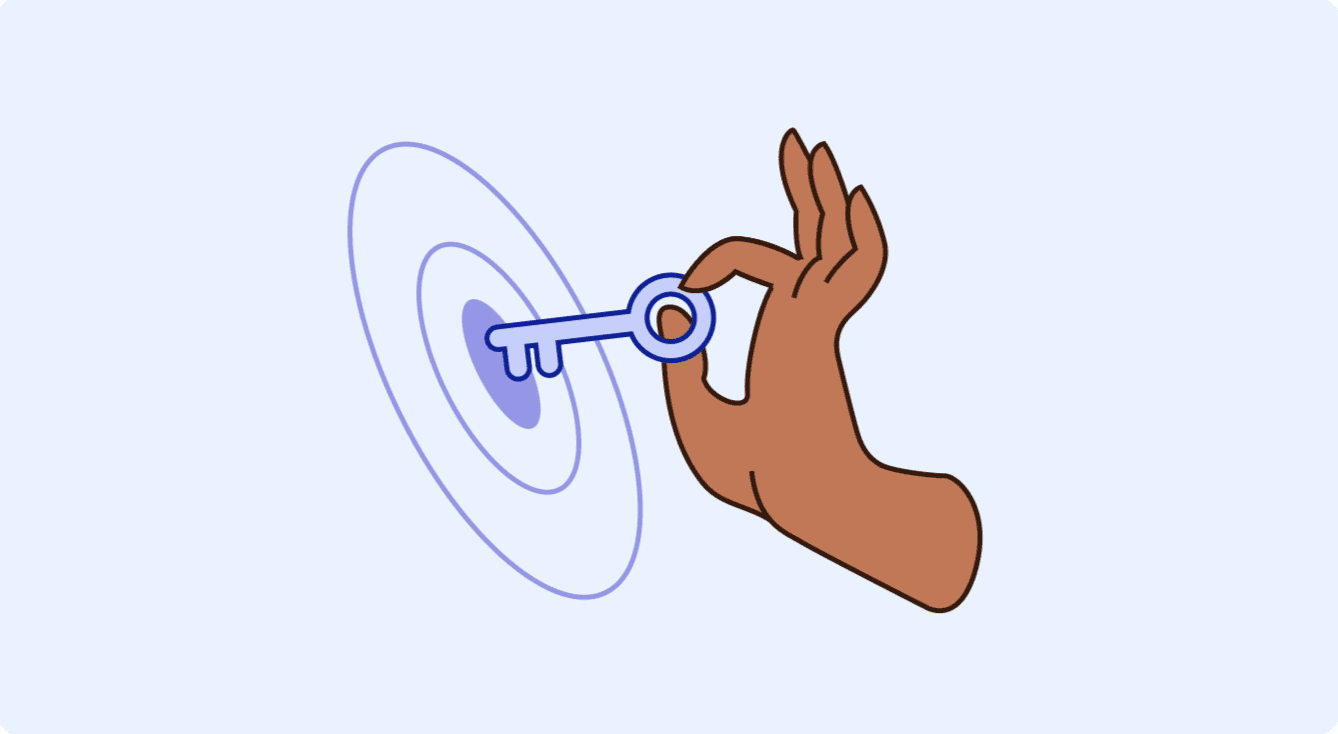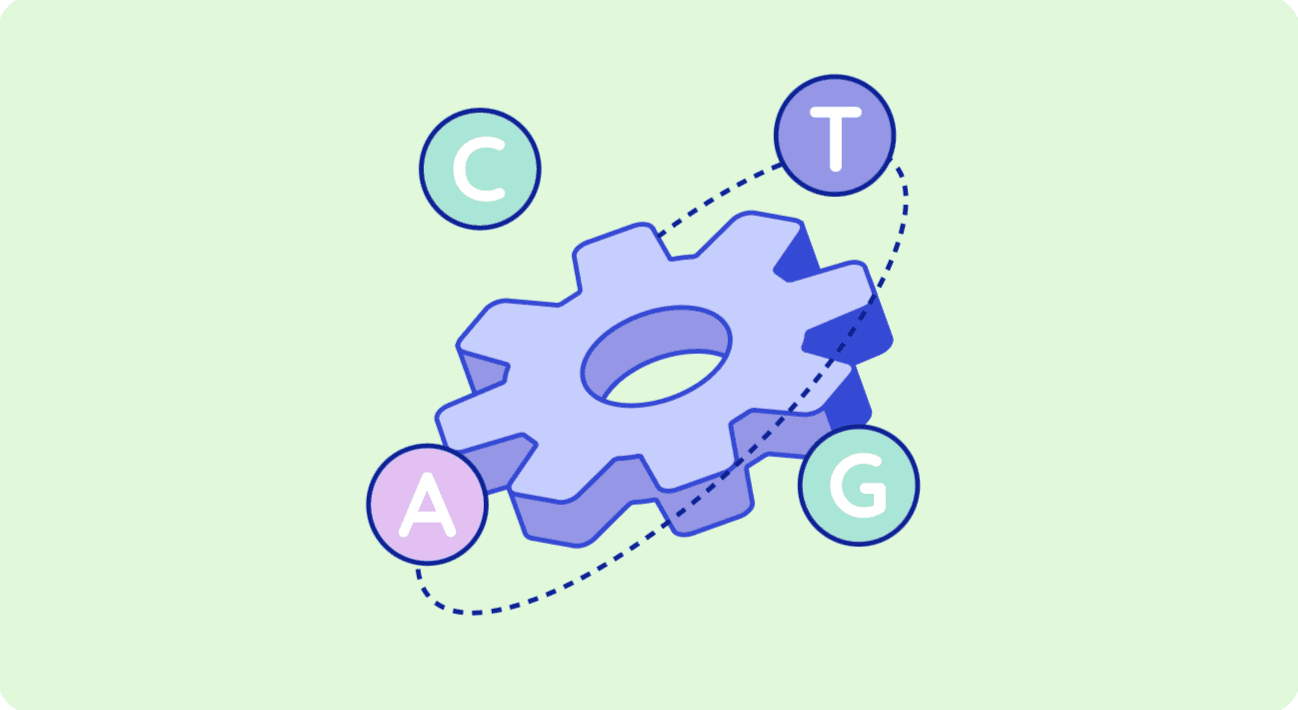The human genome — the 6 billion bases of code that make up your DNA and serve as the language of life — is mostly the same for all human beings. But slight differences at precise spots in the genome, called variants, make us all unique.
These variants can range from being common, where they are more frequently found in people’s genomes, to extremely rare, with only a few people in the world who may have a particular variant.
Typically, variants that are common have a smaller impact on your disease risks and traits. On the other hand, rarer variants tend to have a greater impact. This is why we call them “high-effect” variants. In some cases, a high-effect variant can single-handedly cause a disease or trait.
But generally, the genetic basis of most well-known diseases and traits is very complex, resulting from not one, but many variants (1). This includes common and high-effect variants working collectively to raise or lower one’s disease risk or chances of having a trait. These kinds of diseases and traits are called polygenic (“poly” meaning many and “genic” meaning genes). Other influencing factors include family history, personal habits like smoking, diet, and environment.
You may be wondering: What diseases and traits do your collection of variants predispose you to?
This is where common genetic scoring enters the picture. A common genetic score measures the combined effect your common variants have on your diseases and trait dispositions, relative to people who are of similar ancestry to you. The higher the score, the more your common variants place you at a higher genetic risk of developing the disease in question. In the context of traits, this means you’re more likely to have that trait or a greater expression of that trait (if it exists on a continuum).
Conversely, a lower score means less risk of developing a disease or having a certain trait.
Comparing genomes
To discover variants, researchers often compare the genomes of numerous people with a disease or trait to many without that same disease or trait. By doing this, researchers can find differences at specific locations and understand the influence a variant has on the development of a feature.

Common genetic scoring does have its limitations*. The genomic data that are currently available is mostly based on populations of European descent (2). While many diseases and traits are linked to variants in people across the globe, ancestry-specific variants still need to be considered.
Nucleus has taken steps to statistically account for this data imbalance. Your scores are always relative to people who are of a similar ancestral background to you. And the more data we receive from people across different ancestries, the more our risk assessments and understanding of all humankind will improve.
That said, while common genetic scores are an effective tool, they still need to be improved , especially for non-European populations. Researchers are continually finding new variants that shape both human diseases and traits across all ancestries. Nucleus is constantly tapping into this frontier of scientific research to routinely update and improve your scores to ensure that you have the most sophisticated genetic analysis available.
Welcome to Nucleus: a new era of personal health discovery.
*Common genetic scores are not a diagnostic tool and do not guarantee whether a person will or won’t develop a disorder. These scores also do not account for all environmental factors that may influence the development of a disease.

References
1
Lewis CM, Vassos E. 🔗 Polygenic risk scores: from research tools to clinical instruments. Genome Med. 2020 May 18;12(1):44. doi: 10.1186/s13073-020-00742-5. PMID: 32423490.
2
Popejoy AB, Fullerton SM. 🔗 Genomics is failing on diversity. Nature. 2016 Oct 13;538(7624):161-164. doi: 10.1038/538161a. PMID: 27734877.
Keep exploring






